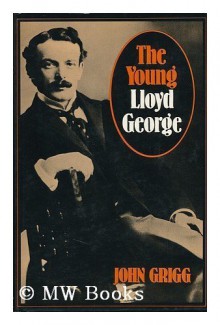The Young Lloyd George covers Lloyd George's life from his birth in 1863 to the end of the Boer War in 1902. It is a period of great intrinsic interest and highly relevant to Lloyd George's future career; but comparatively little has been known about it hitherto. John Grigg has not only drawn...
show more
The Young Lloyd George covers Lloyd George's life from his birth in 1863 to the end of the Boer War in 1902. It is a period of great intrinsic interest and highly relevant to Lloyd George's future career; but comparatively little has been known about it hitherto.
John Grigg has not only drawn very fully upon the public sources that have always been available; he is, more especially, the first biographer to have been allowed to use the magnificent collection of early Lloyd George letters and other documents, which came to light a few years ago and which is now in the National Library of Wales. These provide material for a far more vivid picture of Lloyd George's early life, his personal characteristics, and his struggle to climb to the top, than has ever appeared before.
After portraying Lloyd George's Welsh background, his education in the village school at Llanystumdwy and at home, under the guidance of his uncle, Richard Lloyd. John Grigg describes his emergence as a local solicitor and politician, his election to Parliament and his first twelve years in the House of Commons. There his early successes and frustrations were mainly as a champion of Wales, though also as an unofficial leader of the Liberal Party at a time when its official leadership was divided and ineffective. His eyes were always fixed on larger goals, and by the end of the Boer War he was firmly established also as a figure of national importance.
The letters written by Lloyd George to his wife when he was a young M.P. throw light not only on his political activities, but on his marriage. In particular, they show that Margaret Lloyd George had partly herself to blame that the marriage ran into trouble. Mr. Grigg is thus able to re-examine many stock assumptions about Lloyd George and to paint a picture of him which is fresh and original. He never loses sight of the man behind the politician, nor does he forget that politics were, after all, the dominating passion of Lloyd George's life. He throws new and important light on Lloyd George's difficult finances, especially in a revealing chapter on the ill-fated Welsh Patagonian Gold Syndicate.
Not only are Lloyd George's letters eloquent, but his speeches--already in his early years as an M.P.--had the wit and sparkle, and the sheer force of argument, which mark his famous speeches as Chancellor of the Exchequer and Prime Minister. The Young Lloyd George presents, in short, a new interpretation of the man, both as a private individual and as a major historical personality. It is indispensable, as well as highly entertaining, reading for anyone interested in modern British history--or in the psychology of genius.
show less

